"I have worked with Growthack for just over a year now, utilising their expertise, advice and management of our SEO and PPC channels. They are a real pleasure to work with, clearly experts in their field and have had an enormous impact on the quality and volume of traffic to our SaaS product."

Kevin Kapezi: SEO Consultant based in Nottingham
As well as being Growthack’s SEO consultant, Kevin is an experienced digital marketing specialist. Having clocked up years working for a vast range of brands, from international credit giant Experian to startups, his all-around experience allows him to take a comprehensive view of your online presence to spot gaps, seize opportunities and drive performance. He’s an accomplished speaker and mentor too, delivering talks at industry events.
Industries served: SaaS & Fintech, B2B Enterprises, D2C Brands, Retail & Fashion, Fast-growth SMEs, Legal & Professional Services, Recruitment
On Socials
Why choose me as your SEO and digital marketing consultant?
I’m a well-rounded digital marketing professional with 7+ years of experience in improving performance for B2B, B2C, eCommerce and Lead Gen websites. Read some of the reasons why clients have chosen to work with me from the below Google Reviews.
Knowledgeable on all aspects of SEO
“It’s been a pleasure to work with Kevin at Growthack, he’s incredibly knowledgeable on all aspects of SEO, including the hard technical things. He’s also a great guy, a great listener and brings very good ideas to the table. He’s also helped set up and explain all the important KPIs to track for success. Would highly recommend!” – Alex, Elements Property
An uplift in organic traffic
“Kevin has been a huge help with our SEO. His expertise and knowledge has helped us identify areas we need to make improvements combined with his support we have seen a great uplift in our organic presence.” – Louis, Shakespeare Martineau
A data led approach
“We have been working with Growthack on multiple projects. Their expertise on SEO + PPC and looking at data to analyse and make sense of it helped achieve better results. Would definitely recommend them.” – Siva, Autify Digital
Bespoke reporting
“Kevin and his team provided an excellent service at a competitive price. Their reporting on how the SEO was growing is the best that I have worked with to date.” – Harry, Happyhay Co.
Effective plans
“We’ve been working with Growthack for a few months now and not only are they great guys but they also know what they are doing. They started by fixing our rookie errors and have since systematically gone about increasing our online presence with thoughtful and, as it turns out, effective plans. For our niche products this is vital. Growthack are an important part of our marketing strategy and their consultancy has been invaluable.” – Dan, Info Point
We have so many great speakers lined up for you this year! Who are you looking forward to seeing? #IntSS @UlrikaViberg @mertazizoglu @KEVKDigital @aleyda @spanskseo @kas_tweets @sophiegibson @Pechnet @methode #internationalseo #barcelona #DigitalMarketing pic.twitter.com/hVeAeYR03t
— International Search Summit (@IntSearchSummit) October 24, 2022
Safeguard Traffic
SEO is a continuous approach to improving your website and needs constant review. We'll keep pushing for better each and every month.
Keep Up to Date
Working with an SEO Specialist, you’ll have immediate access to a wealth of information to help you gain results as quickly as possible.
Grow Revenue
We take the guesswork out of measuring your performance and provide actionable insights on a monthly basis.
What does SEO really mean?
Search Engine Optimisation (SEO) is a systematic process of acquiring website users via natural search queries in search engines. This involves content production as well as technical optimisations to improve website usability, trustworthiness and brand visibility.
What is SEO and how does it work?
SEO stands for Search Engine Optimisation and its purpose is to increase organic visibility and drive quality traffic to websites from search engines like Google, Bing, or Yahoo.
Search engines use advanced algorithms to determine which websites should be displayed first in search results, and SEO helps websites meet the criteria that these algorithms look for.
The goal is to make the website more accessible and informative to search engines as well as web users. This ensure that sites appear higher in search results for relevant search terms and queries. However, this requires ongoing effort as algorithms are constantly changing.
SEO includes optimising content with relevant keywords, improvements to the website’s structure, brand building, and metadata to make pages more accessible to search engines and informative to the reader.
The benefits of a successful SEO strategy can include more website visitors, higher engagement, more sales, and better brand recognition.
What is an SEO consultant?
The role of an SEO consultant is to safeguard and improve the organic performance of a website. This involves analysing the online content, site structure, as well as internal and external links to enhance both users’ and search engines’ discovery of your brand.
Specialisms within SEO can also delve deeper into sub-categories such as:
- SEO Audits
- B2B Enterprise SEO
- Website Migrations
- Technical SEO
- International SEO
- E-commerce SEO
- Content Strategy
- Local SEO
Across various platforms:
What does an SEO consultant do?
SEO Consultants help businesses both large and small with effective online growth strategies, leveraging search engines by implementing changes to websites and planning content to enhance organic visibility and promote growth.
Do I need an SEO consultant?
Yes. You probably do and don’t realise it.
If you have a business and it’s online you’ll need to ensure your brand is presented to your audience when they search for relevant queries. You can learn how to do this yourself, however, the internet is flooded with so much information that it might be more cost-effective to outsource your SEO activities to someone like me who has invested years into the profession.
SEO Consultant vs a 'full-service' agency
Consultants are typically more invested in your project from end-to-end: from the sales pitch to the delivery of the SEO strategy. In comparison, large agencies could have their most experienced directors pitch to your business and then delegate the service deliverables to a newer member of the team.
Growthack is not a typical agency and relies on the knowledge as well as other highly-specialist partners to deliver the best work possible.
As an example, we work closely with a specialist development team, specific to the Magento platform (Adobe Commerce) for websites that need this support. This level of website management is often difficult to find within one, ‘full-service’ SEO and web agency.
What's included in an SEO Audit?
An SEO audit is a complete review of a website’s current SEO performance. It’s an important way to identify any issues or opportunities for improvement that would lead to growth.
Here are 6 things that are commonly included in an SEO audit:
1. Technical SEO
Review of the website’s structure, navigation, page speed, mobile responsiveness, and other technical parts that can affect its search engine ranking.
2. On-page
Analysing the content on each page, including title tags, meta descriptions, headers, images, and internal links to ensure they are optimised for target keywords.
3. Off-page
Assessing the quality and relevancy of external links going to the site.
4. User experience (UX)
Analysing how users interact with the site, which includes site structure, navigation, design, and overall usability.
5. Competitor analysis
This involves analysing the website’s competitors and identifying possibilities to differentiate the site from them.
6. Keyword analysis
Identifying target keywords and analysing the current ranking of the website for those keywords.
How long does it take for SEO to work?
SEO results vary based on factors like competition, website authority, and optimisation quality. Typically, it takes anything from a few weeks to 6-12 months to see noticeable improvements in search rankings and traffic.
However, SEO is an ongoing process that requires regular maintenance and improvements over time.
Do you need SEO every month?
Yes, SEO requires consistent effort, monitoring, and optimisation to improve search engine rankings and organic traffic. The algorithms used by the likes of Google change frequently and competitors are always improving their own SEO efforts, so staying current on the latest trends and practices is important.
To maintain or improve visibility, businesses need to address issues that occur such as broken links, outdated content, or technical errors by regularly working on SEO. Additionally, they can continuously improve their content and website over time to improve user experience, engagement, and attract more visitors.
How much does SEO cost in the UK?
The cost of SEO in the UK relies on several factors, such as the website’s size and complexity, competition within the industry, and the necessary services.
SEO services in the UK are charged either hourly or monthly.
- Hourly rates vary from £50 to £200 per hour, based on the SEO specialist’s or agency’s experience and skill level.
- Monthly rates range from £500 to £5,000, depending on the number of services, competition, and website size.
Businesses must understand that lower-cost SEO services may seem attractive, but they might not deliver the desired results. It’s important to invest in quality SEO services to achieve objectives and a good return on investment.
To conclude, determining the cost of SEO in the UK is complex and affected by multiple factors. Getting quotes from reputable SEO consultants or agencies can help businesses find the best options for their goals and budget.
Can I do SEO on my own?
Yes, it is possible. Keep in mind that it can be a challenging task, but it is achievable with some knowledge, expertise, and time. SEO is a complicated and constantly evolving field that involves a variety of techniques and strategies.
If you have the time, dedication, and willingness to learn, you can grasp the basics of SEO and implement them on your website. Here are some key aspects:
- Research relevant keywords for your business and make a list of targeted keywords to optimise for.
- Create high-quality, original, and engaging content for your website that includes your targeted keywords.
- Ensure your website is user-friendly and easy to navigate. Use descriptive page titles, headings, and meta descriptions.
- Build links from reputable websites to increase your website’s authority and visibility.
- Monitor your website’s traffic and rankings using analytics tools and make adjustments as needed.
Keep in mind that SEO is a long-term process that requires consistent effort and updates. If you don’t feel confident in your abilities, you may want to consider hiring an experienced SEO specialist.
What is an SEO agency and what do they do?
An SEO agency is a type of business that focuses on helping other businesses to improve their online visibility and attract more visitors to their websites.
They usually have a team of SEO professionals who specialise in different aspects of SEO such as keyword research, content creation, link building, and technical SEO.
The services offered by SEO agencies are quite comprehensive and will include SEO audits to identify areas for improvement, research on popular and relevant keywords, content creation to attract and engage website visitors, link building to increase website authority, technical SEO to optimise website performance, local SEO to improve visibility in specific geographical locations, and analytics to track and report on website performance.
Furthermore, they typically provides their clients with regular reports and updates on the progress made towards their SEO goals. These reports may include information on website traffic, search engine ranking, and other relevant metrics.
Is it worth paying an agency for SEO services?
Whether it’s worth paying an agency for SEO services depends on varies factors, including the size of your business, your industry, your competition, your marketing goals, and most importantly your budget. Here are some potential benefits and drawbacks to consider:
Benefits
- Expertise: An experienced SEO agency can provide you with access to a team of SEO professionals with a range of skills and expertise in various areas of SEO.
- Time savings: Outsourcing your SEO efforts to an agency frees up your time to focus on other aspects of your business.
- Faster results: With the right strategy and tactics, an SEO agency can help you achieve faster and more significant results than trying to do it on your own.
- Consistency: An agency can provide consistent and ongoing SEO efforts, which is important for achieving long-term success.
Drawbacks
- Cost: Hiring an SEO agency can be expensive, and it may not be possible for small businesses with limited budgets.
- Quality concerns: Not all SEO agencies are equal, and some may use questionable tactics that could ultimately harm your website’s ranking.
- Lack of control: When outsourcing your SEO to an agency, you may have less control over the process and the results than if you were doing it in-house.
Lastly, the decision of whether to hire an SEO agency depends on your specific business needs, resources, and goals. If you have the time, expertise, and resources to do it yourself, However, if you’re looking for expert guidance, faster results, and consistent efforts, an SEO agency could be worth the investment.
SEO consultant vs 'full-service' agency: what's the difference?
SEO Consultants are typically more invested in your project from end-to-end: from the sales pitch to the delivery of the SEO strategy.
In comparison, large full-service SEO agencies could have their most experienced directors pitch to your business and then delegate the service deliverables to a newer member of the team.
We’re not a typical agency.
However, you can still gain from our agency experience as well as working with other highly-specialist partners to deliver the best work possible.
How do I create an SEO strategy?
Creating an effective SEO strategy involves several steps:
1. Define your goals – Identify what you want to achieve through SEO.
2. Conduct website audit – Evaluate your website’s current state to identify areas for improvement.
3. Research keywords – Identify relevant keywords and phrases for your target audience.
4. Analyse your competition – Evaluate your competitors’ strengths and weaknesses.
5. Develop a content strategy – Create high-quality, relevant content that targets keywords and meets audience needs.
6. Optimise your website – Make changes to improve website structure, content, and technical performance.
7. Track performance – Monitor website performance and adjust strategy based on results.
What does SEO success look like?
That’s the key question for a lot of business owners. SEO success is simply gaining more organic visibility for your brand through search engines such as Google. This involves technical as well as content strategies designed to provide an immediate uplift in how effective you are at selling your products or services.
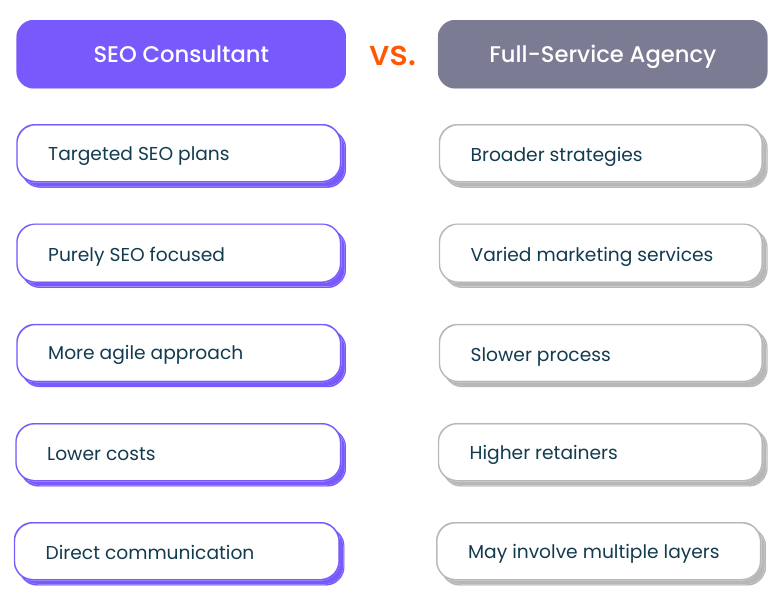
When you partner with us, we’ll be on hand to deliver results-based optimisations in line with your business objectives.
SEO has evolved over the years and goes beyond keyword optimisation.
This can include:
- SEO Audits
- B2B Enterprise SEO
- Website Migrations
- Technical SEO
- International SEO
- E-commerce SEO
- Content Strategy
- Local SEO
Across various platforms:
Learn how we helped the UK’s leading group of legal and professional services companies
Get Started Read MoreTypes of SEO projects
SEO Audits
We deliver laser-focused SEO audits with over 8 yers of experience.
Go beyond the checklist approach by prioritising high-impact improvements, unearthing hidden opportunities, and meticulously analysing each facet of your website’s health.
The result? A realistic plan aimed to catch up with competitors in the areas that matter most to your business.
B2B Enterprise SEO
B2B SEO also seeks to improve your organic visibility but
- The strategic thinking has a singular, deeper focus
- Projects tend to last for years not months
- Business knowledge is ever more important.
There is also a need to get more involved in process improvement.
Typically, large organisations (as well as smaller businesses) are continuously looking for methods to remain competitive and increase market share.
From our experience working with large enterprise organisations such as Experian we can certainly help.
Website Migration SEO
A website migration could occur for a number of reasons and some of these may include:
- A rebrand which results in a domain change
- A merger or acquisition of another company which results in two or more websites moving to another
- A business going through a restructure which results in one part of a website moving to or from a subdomain, or even to a completely new website altogether
A lot of change could take place in either of these scenarios
- Site URLs
- Navigation
- Code changes
- On-page changes
- Content updates
- User Experience
- Design improvements
- CMS replatform
We have years of experience dealing with a lot of these instances and can help navigate you through any major migration.
Some website migration tasks include:
- Technical website audits
- Content mapping for all related sites
- Backlink analysis and risk assessments
- Creating a redirect file to ensure brand equity is maintained
- Auditing Google Business Profiles and updating listings
- Performance monitoring and reporting on progress
- Updating Google Search Console
Technical SEO
Advanced Technical SEO techniques involve understanding how to better improve your website’s ability to be crawled, indexed and rendered by Search Engines. This could involve but it is not limited to sitemaps, site structure, internal links, as well as resolving page and server errors.
International SEO
When expanding into new or existing global markets, an effective International SEO Strategy could be the difference between success and failure.
It all starts with the structure of your website and if this is in line with your business’ plans for international expansion.
E-Commerce SEO
Ecommerce SEO is essential in helping websites increase their revenue generation when selling goods or services that require payment online. This could include fashion retailers, equipment manufacturers, general online stores as well as thousands of other niche stores. Whatever the platform, the principles remain the same.
E-commerce platforms where we have experience include:
- Shopify
- BigCommerce
- WooCommerce
- Magento
Content SEO Strategy
It’s a process of planning, creating, and optimising website content to improve it’s search engine rankings and attract more organic traffic.
Conducting keyword research to identify relevant and high-traffic keywords, creating content that addresses the search intent of the target audience, and optimising the content for on-page SEO factors such as title tags, meta descriptions, and internal linking.
The goal of an effective SEO content strategy is to not only drive more traffic to the website but also to increase engagement, conversions, and brand awareness.
Local SEO
Local SEO is the practice of improving your online presence to get more business from local searches.
Why is this important?
- 30% of all mobile searches are related to location.
- 28% of searches for something nearby result in a purchase.
- 78% of people visit the business within a day.
We’ll help your local business generate more enquiries using a number of techniques which include:
- Local keyword research
- Google Business Profile (GBP) optimisation
- Citations and directory listings
- Local market analysis
Helpful content
The fundamentals of ‘helpful content’ are summarised below:
- Avoid creating content for search engines first – is this the sort of content you’d want to bookmark, share with a friend, or recommend?
- Demonstrate first-hand expertise and a depth of knowledge – does the content provide original information, reporting, research or analysis?
- Create user satisfaction – does the content provide a substantial, complete or comprehensive description of the topic?
Satisfy user search intent
After reading your content, will someone leave feeling they’ve learned enough about a topic to help achieve their goal?
The best SEO strategies have the customer in mind. Simply put, SEO helps to better inform you of specific changes that could help your website users find what they are looking for faster and easier.
Provide exceptional value for the reader
Does the content provide substantial value when compared to other pages in search results and what other useful, unique supporting information can we provide?
In practice, we can include any of the following: templates, tables, downloadable PDFs, videos, quotes from interviews, internal links to services, webinars etc.
Nicholas, Global Fintech SaaS Company
"Worked together with Kevin and his team on a project, everything was executed right on time, they are real specialists in what they do! I highly recommend them if you want a job well done and delivered on time."
Viktor, Afillix
“Growthack has certainly been a driving factor in supporting our overall goal of expanding audiences, updating our website and increasing sales worldwide. The team are dedicated and any company would benefit from working with them.”
Lana Rush, Brodie Cashmere
"We needed some help with Shopify and Kevin helped me pick lots of low hanging fruit and achieve some quick wins. I appreciated his time and believe that he would be a valuable asset to the marketing team of any e-commerce brand."
Kish Khurana, Gears Canada
"Kevin and his team provided an excellent service at a competitive price.
Their reporting on how the SEO was growing is the best that I have worked with to date.
I would happily recommend them."
Harry Brooks, Happy Hay
"Foxology has seen extensive growth in organic traffic and online sales, from the campaigns and SEO work they have done. Always supportive of the business and able to adapt and think outside the box, I would recommend to anyone, especially start-ups."
Dawn Foxall, Foxology Clothing
"It's been a pleasure to work with Kevin at Growthack, he's incredibly knowledgeable on all aspects of SEO, including the hard technical things. He's also a great guy, a great listener and brings very good ideas to the table."
Alex Stretton, Elements Property
You can see a summary of Whitespark’s Local Search Summit 2021 here >
What's your goal?
Clicks, conversions, sales — growth’s the name of our game. Talk to us about your big ambition and we’ll take it from there.
Send us a brief


Our clients say it best
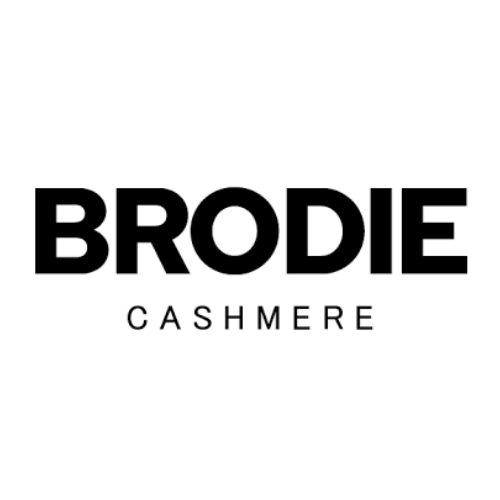
We’ve worked with Growthack for the past year. In this time we saw results driven growth both in sales and in audience as a result of their efforts. They took a motivated approach in over delivering other potential variations and recommendations to improve our website, ensuring every touch point was the best it could be in order to convert.
Lana Rush
Head of Marketing, Brodie Cashmere

Kevin and his team provided an excellent service at a competitive price. Their reporting on how the SEO was growing is the best that I have worked with to date.
Harry Brooks
Founder, The Happy Hay Co.
We've really enjoyed working with Kevin and Growthack. They really understood what we were trying to achieve with our SEO strategy and website and have gone above and beyond to help us improve the odds for young people. I would highly recommend them with all my heart!
Jack Parsons
CEO, The Youth Group

Working with Growthack has been refreshingly straightforward and I couldn't have wished for better results. We've managed to grow our business and expand our team considerably over the past year, thanks to their fantastic Google Ads strategy.
Craig Boden
Director, Mortgage Advice Hub
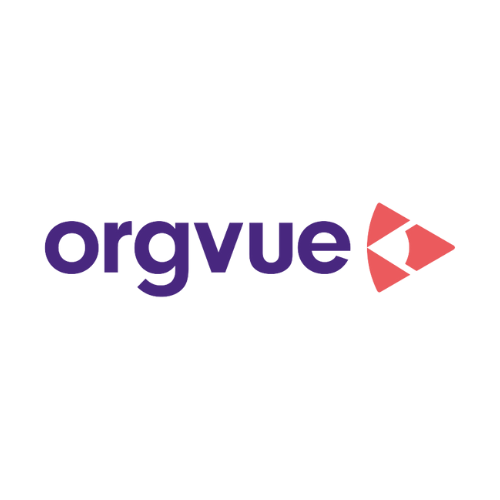
Working with Growthack has been extraordinary: great can-do solution attitude, great commercial acumen and delivers amazing quality work. Our paid media channels deliver more revenue than any other channel and significantly increase our share-of-voice among key accounts.
Kathy Harvey
Global Head of Digital, Orgvue
You might also be interested in the below services
Technical SEO
Technical SEO techniques involve understanding how to better improve your website’s ability to be crawled, indexed and rendered by Search Engines.
Learn moreE-Commerce SEO
Ecommerce SEO is essential in helping websites increase their revenue generation when selling goods or services that require payment online.
Learn moreInternational SEO
When expanding into new or existing global markets, an effective International SEO strategy could be the difference between success and failure.
Learn moreYour results, our expertise.
We’ve received multiple awards and recognitions for our team, clients, and partners. View our awards.

European recognition with the best agencies in the UK and abroad. Wish us luck at the awards event in May 2024!
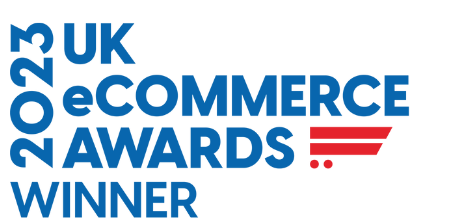
Our ability to optimise ad budget allocation has returned impressive outcomes with the integration of digital data in shaping product decisions.

We are beyond proud of this recognition from one of the most prestigious search awards for our work with Ampa LLP

Address: Growthack Ltd, 31 Park Row, Nottingham NG1 6FQ
About Growthack
Copyright © 2020 – 2024. Registered in England and Wales No. 12868240.
VAT Reg GB392684357.
